A mountainous country that was long isolated from the outside world, the laid-back Laos promises unique and authentic adventure. It is probably the least-known destination in Southeast Asia, but you may think twice after reading 9 following spots.
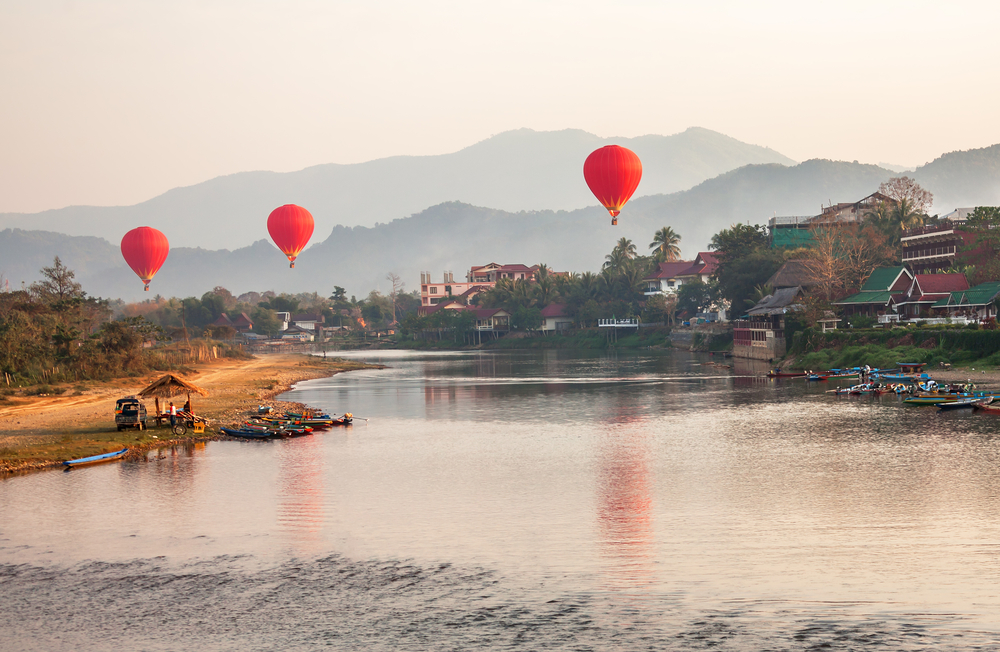
Vang Vieng
Located approximately 150 north of Vientiane, the small town of Vang Vieng lies on the banks of Nam Song River surrounded with karst hill landscapes. Although Vang Vieng has no beautiful architectures, modern resorts or wide boulevards, the town, noted for its peaceful picturesque scenery and fresh air, attract thousands of young travelers every year, many times more than its population of 50,000.
Khoun Kong Leng Lake
Khoun Long Leng is a lake in Khammouane Province, 30 km north of Thakhek in the Phu Hin Pun foothills. The 21m deep lake features bright emerald waters which spring from a subterranean river that filters through the limestone located around the mountain, giving the water its green color.
Tourists are allowed to swim and bath in the stream that flows from the lake, near the wooden footbridge and not in the lake itself. Besides, you can walk around the trail surrounding the forest.

Pha That Luang
Pha That Luang is a gold-covered large Buddhist stupa in the center of Vientiane. It is regarded as the most important monument of Laos and also the national symbol. The stupa was originally built as a Hindu temple in the 3rd century and undergone several reconstructions, the most recently is in the 1930s. Experiencing the ups and downs, Pha That Luang still keeps its beautiful architecture that reflects the Lao culture and identity.
Kuang Si Falls
Kuang Si, 29km south of the World Heritage Site of Luang Prabang is a three tier waterfall leading to a 50m drop into spectacular pools before flowing downstream. It is a very popular side trip for tourists in Luang Prabang. These pools is ideal for swimming thanks to the clear turquoise waters. Come prepared with swimsuit to jump in.
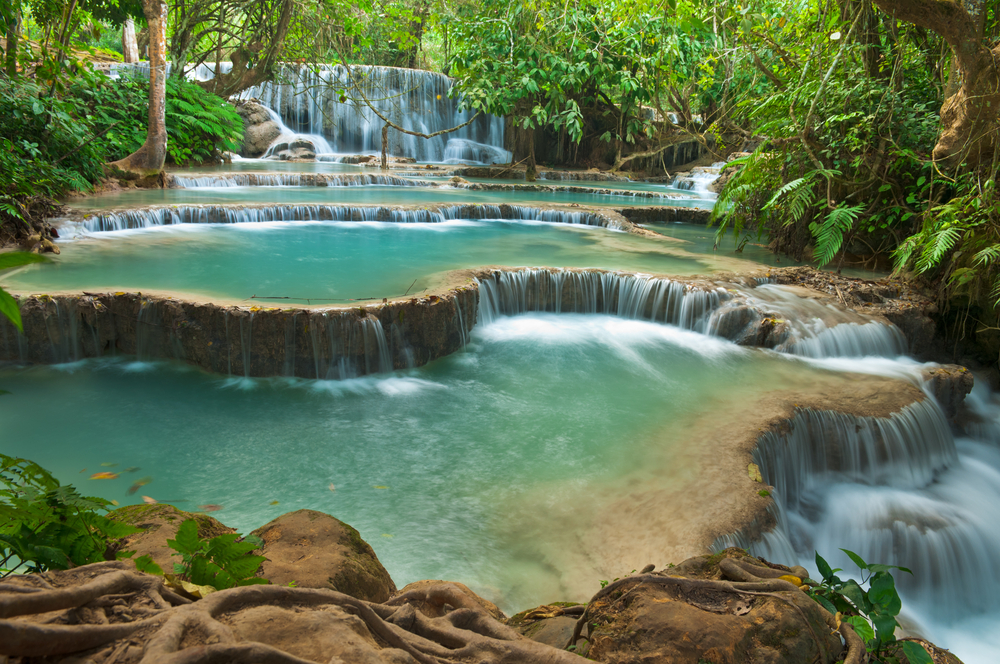
The Plain of Jars
Located in the Phonsavan town, the administrative center of Xieng Khouang province in Northeast Laos about 30km, the Plain of Jars is considered the most enigmatic attraction in the country. It consists of thousands of stone jars lie in clusters scattered across the valley. Vary in height and diameter from 1 to 3m, the jars were about 2500 – 3000 years old; however, their origin and purpose still remain a mystery nowadays. Of all the many jar sites, there are three most popular ones namely Site 1, 2, and 3. While Site 1 is the biggest of its kinds, Site 2 and 3 offer beautiful views of the valley below as they are situated on top of small hills.
Tham Khoun Xe Cave
Tham Khoun Xe Cave, also known as Xe Bang Fai, is an immense river cave in the remote area of Khammouane Province in central Laos. It was first discovered by a French explorer Paul Macey and his team in 1905.
Tham Khoun Xe is a hidden section of an underground river of Xe bang Fai, one of the largest river caves in the world with giant passages up to 120 meters tall, 200 meters wide and impressive geological structures.
There is a lush green forest in the mouth of the cave. Its superior greenness looks perfect in correspondence to the white, orange of the terrace fields, creating a colorful and eye-catching zone on the limestone wall.
Tham Khoun Xe Cave is majestic and enigmatic. It will amaze you from the very first sight. Local people believe that there exists many spirits living in the underground river and protecting them whenever they fall from the challenging cliff.
Si Phan Don
Si Phan Don in Lao means 4000 islands, is a popular attraction that one should not miss in their itinerary to Laos. It is a vast archipelago in the southern region, characterized by numerous islands, half of which are submerged when the Mekong River is in flood, giving visitors a relishing laidback atmosphere that they can soak up in. The most visited islands are Don Khon, Don Det and Don Khong, which is the largest one.
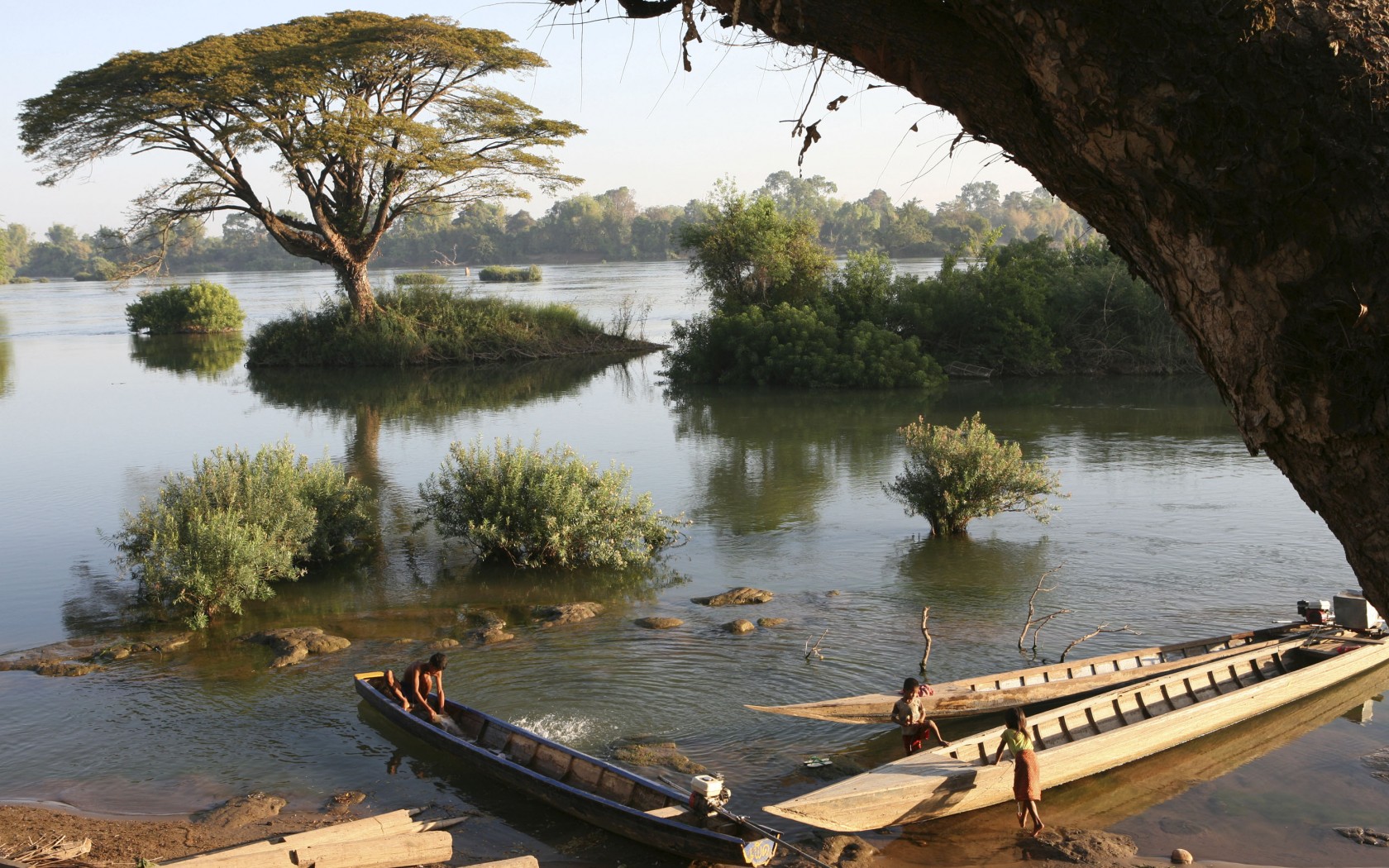
A popular activity here is leisurely cruising down the river and spotting the rare Irrawaddy dolphin, one of the most endangered species in Southeast Asia.
Vat Phou
Vat Phou, literally ‘mountain temple’, is a ruined Khmer Hindu temple complex at the base of mount Phu Kao, 40km south of Pakse in southern Laos. One temple in the site was built in the 5th century, while the surviving structures date from the 11th to the 13th centuries. Most of them are made of sandstone, laterite and bricks.
This recognized UNESCO World Heritage Site was dedicated to Shiva. In the 13th century it was converted into a Buddhist monastery. Today the temple still serves as a Buddhist site for local ones.
Pak Ou Caves
Pak Ou Caves is located 25km to the north of Luang Prabang or two hours upstream the Mekong. It is a group of two caves, the Tham Ting (lower cave) and the Tham Theung (upper cave), overlooking the Mekong River. They are noted for their miniature Buddha structures, many of which are damaged wooden figures, in different positions such as meditation, teaching, peace, rain, and reclining.


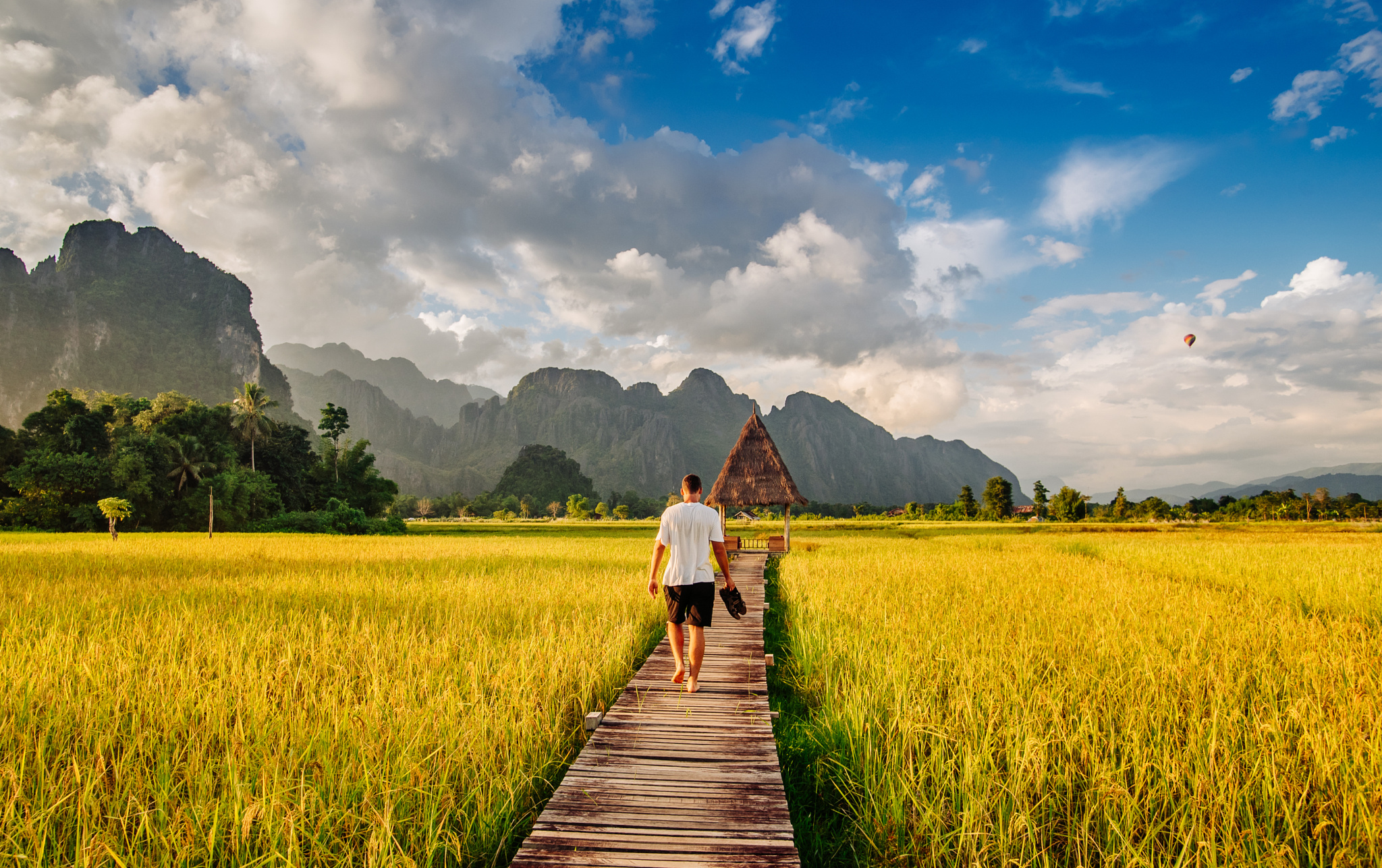
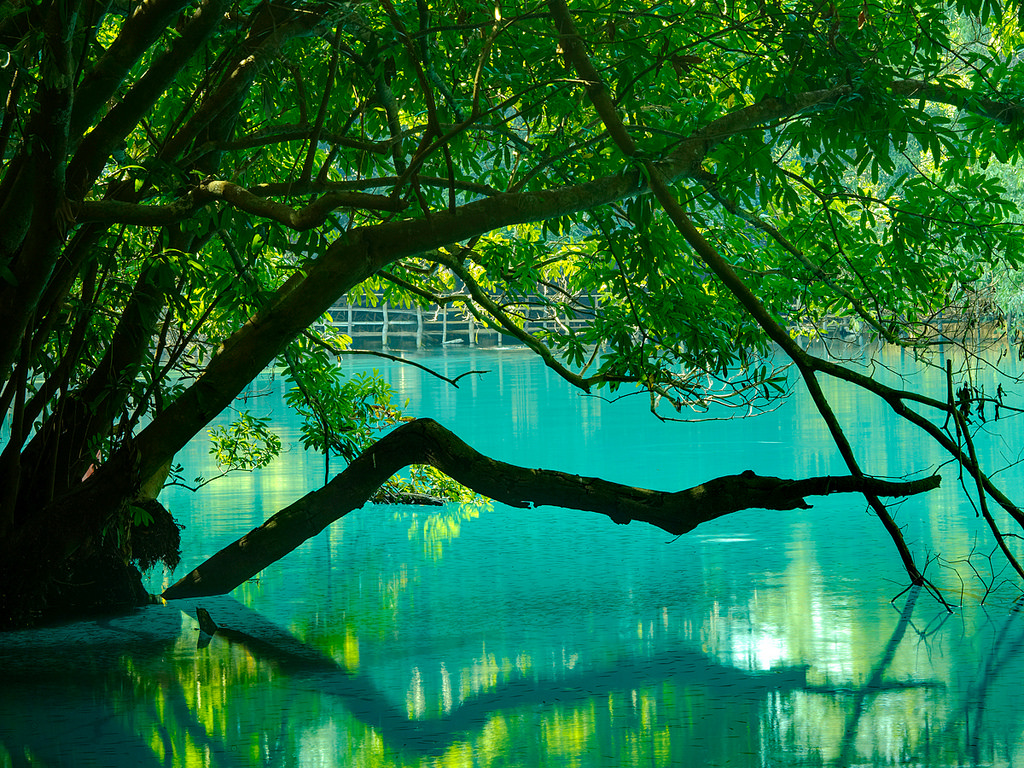
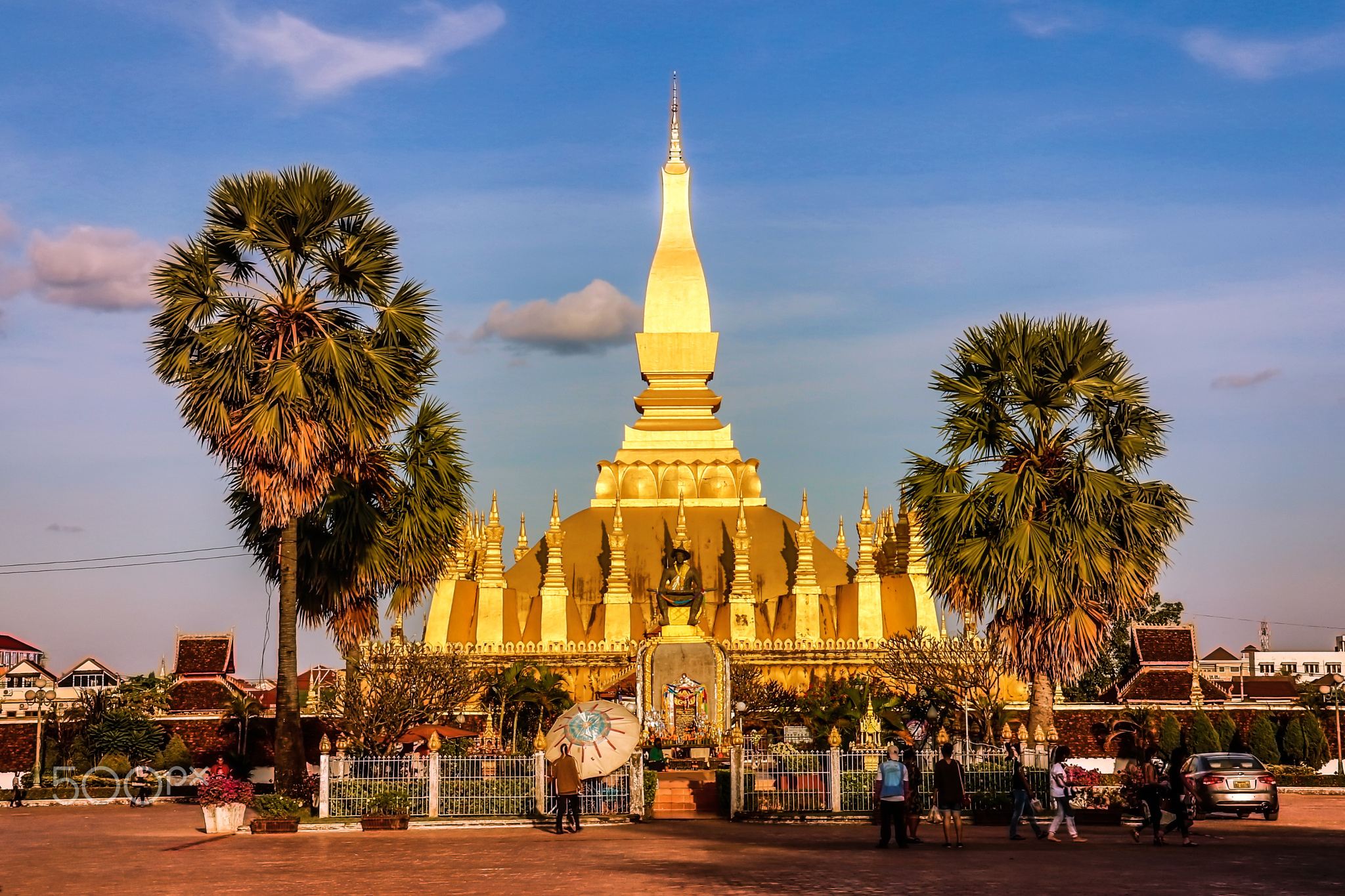
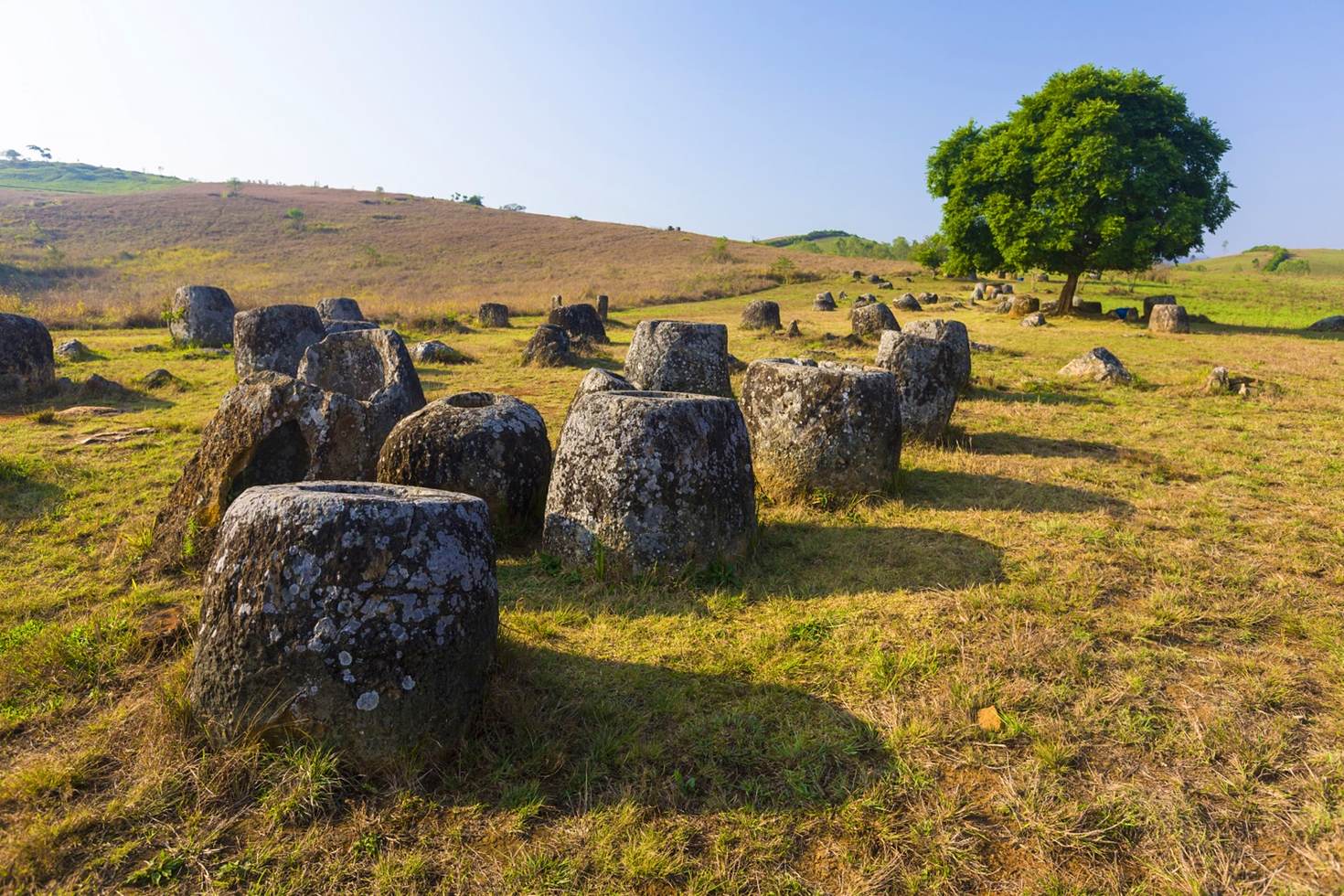
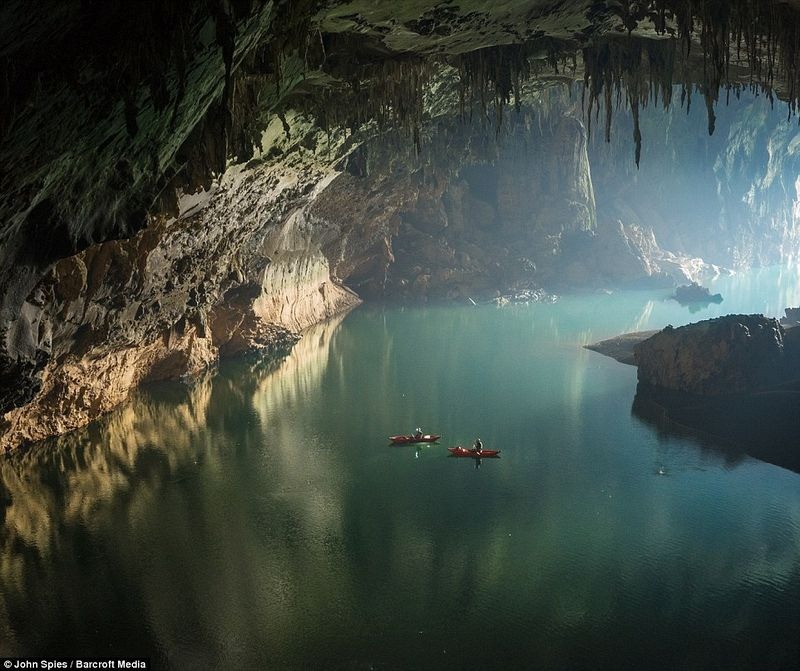
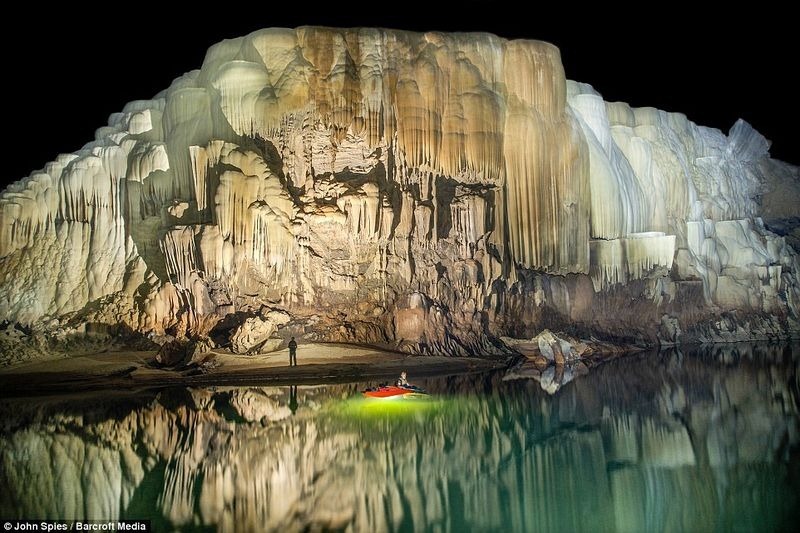
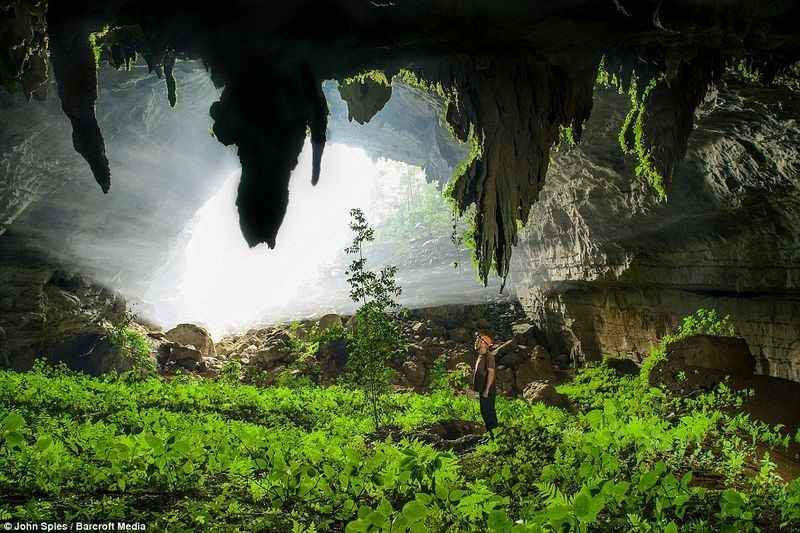
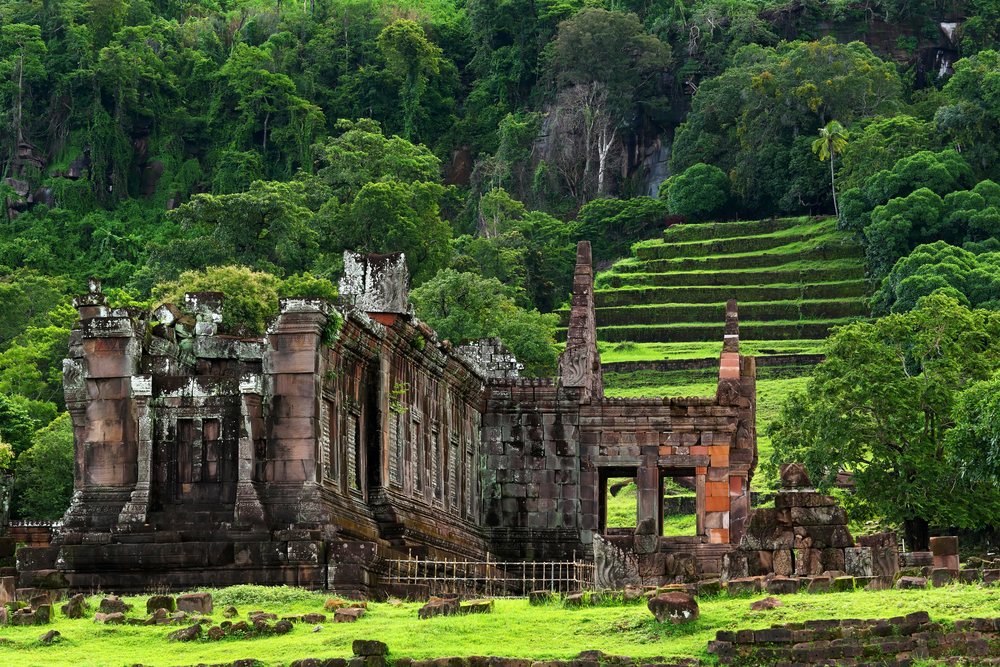
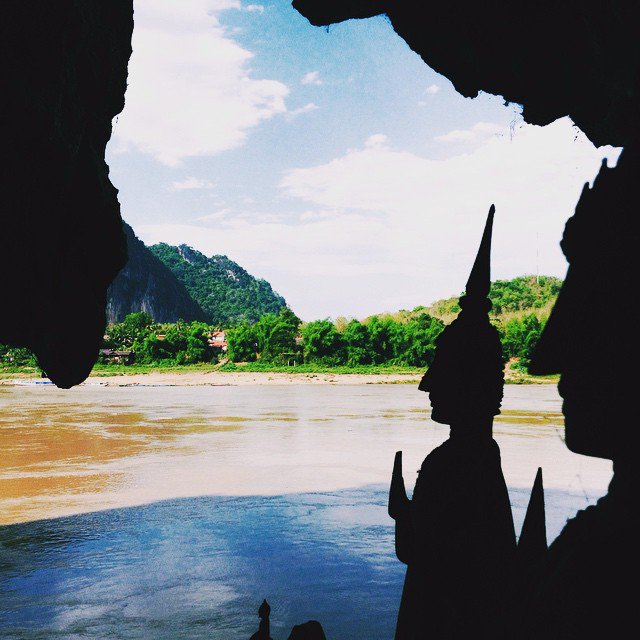


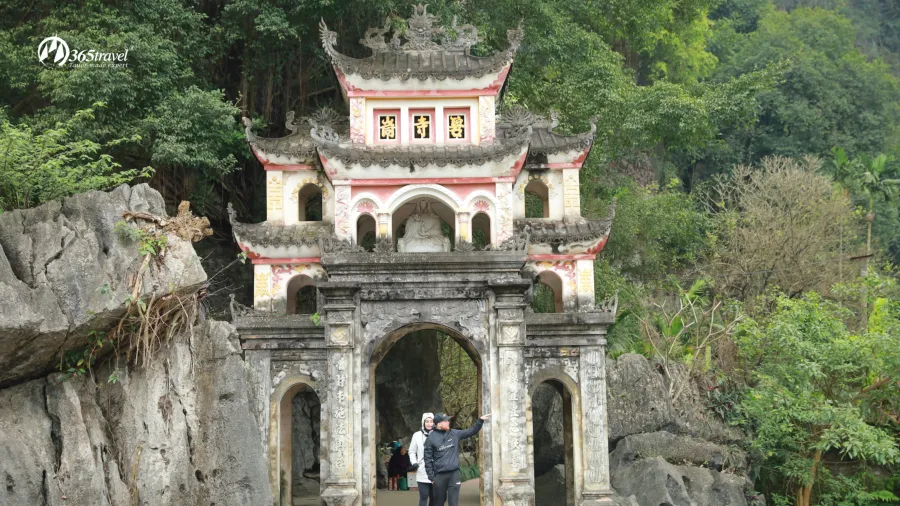

 17 Years of Experience & Expertise
17 Years of Experience & Expertise